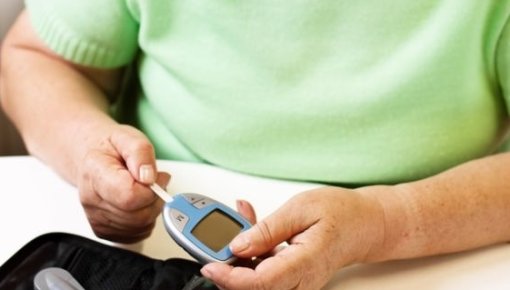Anyanwagu U, Mamza J, Donnelly R et al. Comparison of cardiovascular and metabolic outcomes in people with type 2 diabetes on insulin versus non-insulin glucose-lowering therapies (GLTs): A systematic review and meta-analysis of clinical trials. Diabetes Res Clin Pract 2016; 121: 69-85.
Bolen S, Tseng E, Hutfless S et al. Diabetes Medications for Adults With Type 2 Diabetes: An Update. 2016.
Bundesärztekammer (BÄK), Kassenärztliche Bundesvereinigung (KBV), Arbeitsgemeinschaft der Wissenschaftlichen Medizinischen Fachgesellschaften (AWMF). Nationale Versorgungsleitlinie: Therapie des Typ-2-Diabetes. S3-Leitlinie. AWMF-Registernr.: nvl-001g. 2023.
European Medicines Agency (EMA). European Medicines Agency clarifies opinion on pioglitazone and the risk of bladder cancer. 2011.
Fullerton B, Siebenhofer A, Jeitler K et al. Short-acting insulin analogues versus regular human insulin for adult, non-pregnant persons with type 2 diabetes mellitus. Cochrane Database Syst Rev 2018; (12): CD013228.
Gnesin F, Thuesen AC, Kähler LK et al. Metformin monotherapy for adults with type 2 diabetes mellitus. Cochrane Database Syst Rev 2020; (6): CD012906.
Griffin SJ, Leaver JK, Irving GJ. Impact of metformin on cardiovascular disease: a meta-analysis of randomised trials among people with type 2 diabetes. Diabetologia 2017; 60(9): 1620-1629.
Kim JY, Yang S, Lee JI et al. Cardiovascular Effect of Incretin-Based Therapy in Patients with Type 2 Diabetes Mellitus: Systematic Review and Meta-Analysis. PLoS One 2016; 11(4): e0153502.
Landgraf R, Aberle J, Birkenfeld AL et al. Therapy of Type 2 Diabetes. Exp Clin Endocrinol Diabetes 2019; 127(S 01): S73-S92.
Li J, Tong Y, Zhang Y et al. Effects on All-cause Mortality and Cardiovascular Outcomes in Patients With Type 2 Diabetes by Comparing Insulin With Oral Hypoglycemic Agent Therapy: A Meta-analysis of Randomized Controlled Trials. Clin Ther 2016; 38(2): 372-386.
Peterson SC, Barry AR. Effect of glucagon-like peptide-1 receptor agonists on all-cause mortality and cardiovascular outcomes: A meta-analysis. Curr Diabetes Rev 2018; 14(3): 273-279.
IQWiG health information is written with the aim of helping people understand the advantages and disadvantages of the main treatment options and health care services.
Because IQWiG is a German institute, some of the information provided here is specific to the German health care system. The suitability of any of the described options in an individual case can be determined by talking to a doctor. informedhealth.org can provide support for talks with doctors and other medical professionals, but cannot replace them. We do not offer individual consultations.
Our information is based on the results of good-quality studies. It is written by a team of health care professionals, scientists and editors, and reviewed by external experts. You can find a detailed description of how our health information is produced and updated in our methods.

